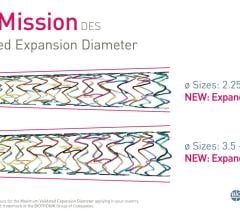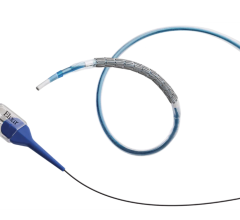July 19, 2007 – Abbott announced that the first patient was enrolled in its XIENCE V SPIRIT WOMEN clinical trial, the first clinical trial designed to study the safety and effectiveness of drug eluting stent treatment in women.
The goal of the XIENCE V SPIRIT WOMEN trial is to increase understanding of how heart disease affects women and to assess the performance of the XIENCE V Everolimus Eluting Coronary Stent System in women with previously untreated coronary artery lesions from Europe, Asia-Pacific, Canada and Latin America. The trial will focus on specific aspects of women’s health in relation to coronary artery disease such as general awareness about the disease, symptoms at time of presentation, referral patterns, and hormonal menopausal status. Liliana Grinfeld, M.D., of the Hospital Italiano in Buenos Aires, Argentina, performed the first procedure.
The XIENCE V SPIRIT WOMEN clinical trial is the first large interventional study to examine how cardiovascular disease differs in women from men. XIENCE V SPIRIT WOMEN will include approximately 2,000 women from about 100 sites throughout Europe, Asia-Pacific, Canada and Latin America. The trial will evaluate patient and disease characteristics specific to women such as menopausal status and hormonal profiles, as well as treatment outcomes including death, heart attack, the need for re-treatment (target vessel revascularization or TVR) and potential risk of stent thrombosis. In a sub-set of about 450 patients, the trial will compare outcomes in patients treated with the XIENCE V Everolimus Eluting Coronary Stent System from Abbott with the CYPHER SELECT Plus Sirolimus-eluting Coronary Stent from Johnson & Johnson.
“We are honored to have enrolled the first patient in the important XIENCE V SPIRIT WOMEN trial because it is designed to address issues associated with the under-treatment of women with cardiovascular disease,” said Dr. Grinfeld. “The XIENCE V Everolimus Eluting Coronary Stent System performed well, and as with all patients enrolled in the XIENCE V SPIRIT WOMEN trial, the patient will be followed out to 5 years.”
For more information: www.abbott.com


 July 02, 2024
July 02, 2024 









